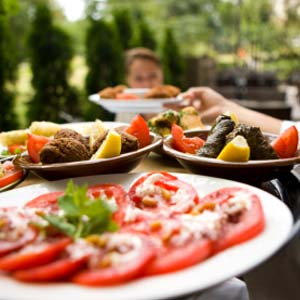
World Food Day is commemorated around the world on the 16th of October in honour of the date of the founding of the Food and Agriculture Organisation of the United Nations in 1945. FoodBank South Africa is reaching out to all South Africans to contribute this World Food Day by donating towards the fight against hunger in South Africa.
Worldwide, a third of all food suitable for human consumption is lost or wasted annually – discarded at various points in the supply chain – from farm or factory to supermarket shelf. According to research by the Council for Scientific and Industrial Research (CSIR), approximately 9,04 million tonnes of food are wasted in South Africa every year.
“In our country, eleven million people live without the fundamental security of regular meals. Unemployment, poverty, increasing food prices and HIV/Aids aggravate food insecurity among the most vulnerable,” said Andy Du Plessis, FoodBank South Africa MD.
Most South Africans cannot afford basic food necessities
As most South Africans cannot afford basic food necessities or to regularly buy ingredients for nutritious meals, many non-profit organisations (NPOs) have rallied to alleviate hunger, by distributing food to the poor. However, in the absence of a co-ordinated effort, South African community-based organisations (CBOs) and NPOs could not benefit from a central logistical infrastructure or have the bargaining power to feed their beneficiaries efficiently and cost-effectively. The only practical solution to prevent food loss and waste is via harmonised food rescue and procurement – the primary function of FoodBank SA.
“Research by the World Food Organisation has revealed that enough food is processed in our country to feed all of its people; the challenge lies in ensuring that food is not wasted, and reaches the people who need it most,” Mr Du Plessis explained.
“Much of this wasted food would be consigned to landfill sites, contributing to the waste management problem in the country. Rescuing food that is surplus to requirement or near its sell-by date, but is still good to eat, allows the organisation to make a positive contribution to reducing the pressure on our country’s waste management systems.”
The role of FoodBank
FoodBank SA plays a pivotal role of the country’s food security systems through its flagship Food Rescue Programme, whereby it sources donated surplus food, essential non-food items and food that is approaching its ‘best by’ date (but is still nutritious and safe to eat), from South African wholesale and retail grocery and fresh produce companies. These much-needed food items are sorted and distributed to non-profit and community-based organisations, such as early childhood development facilities, homeless shelters, soup kitchens and schools.
“Prior to the formation of FoodBank SA, most agencies had to purchase groceries. Food is not at the core of their missions, yet it is a critical component of these organisation’s services and relieving this financial burden allows agencies to direct more resources towards achieving their objectives,” Mr Du Plessis added.
Food Parcels
Food parcels are distributed through established partnerships with vetted and monitored agency beneficiaries. The organisation has a strong preference for agencies that have developmental programmes (such as youth skills training) or their own income-generation projects, designed to discourage dependency and build self-reliance. The activities and financial stability of partner agencies are closely assessed on an on-going basis.
The Food Rescue Programme forms the foundation of FoodBank SA’s efforts to eliminate hunger and malnutrition in the country, but it is the Food Procurement Programme that helps to balance the ‘basket’ of products that are supplied to beneficiary agencies.
Mr Du Plessis explained how the procurement process works: “These healthy staples include maize meal, rice, sugar beans, brown lentils, samp, fruit and vegetables, cooking oil, salt and sugar, and were identified after an agency needs analysis, with input from nutritionists. FoodBank SA is uniquely positioned to buy in bulk from manufacturers to ensure optimal value for money.”
Through its economies of scale, FoodBank SA is able to make financial contributions go a long way by only funding the logistical costs of redistributing food, which ensures that the equivalent of a meal can be provided for under R2.
If you would like to help, please visit www.foodbank.org.za and click on the ‘take action’ tab, or SMS ‘FoodBank’ to 40421 to donate R20 to feed 12 hungry people.




 Publications
Publications
 Partners
Partners













